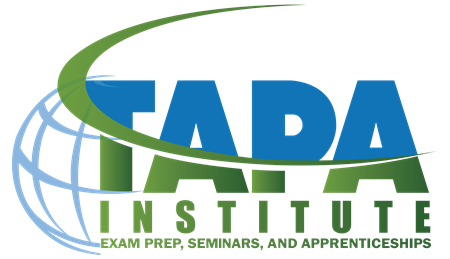Mastering CPA Exam Success through Time Management
Preparing for the CPA exam is a rigorous journey that requires both strategic time management and thorough study habits. A good schedule can allow for time division and extension, increased efficiency, and reduced stress. Dr. Sabine Charles and the TAPA Institute provide practical recommendations and tips concerning the distribution of hours before the CPA exam. Here, you will learn how to manage your time effectively in creating a study timetable to increase your probability of success.
1. Set An Achievable Time Frame
Begin with a plausible timeframe, taking into consideration when you intend to write each of the CPA exam sections. Take the exam dates as the endpoints; calculate how many weeks or days you would require to prepare. It is common that each of these sections takes several months where the concept is first introduced, practiced, and then reviewed.
Preparation of this timeline assists you in maintaining morale and focus. A successful study sequence can also be broken down into phases reading, practice, and final review to avoid cramming and to maintain progress.
2. Establish the Daily and Weekly Study Goals
Time management means segmenting big goals into tangible daily and weekly goals. Instead of breaking up the sections by categories and general ideas, divide each section into chapters or ideas. It keeps you grounded and always moving forward without the feeling of being stuck or behind on something.
For instance, one week focus on a particular chapter and make sure that you grasp what you are learning. This should be done during the weekdays to allow for practice questions and reading, then set aside the weekends for reviewing. It also has consistency, which consolidates the knowledge, thus helping in recalling the information that was grasped earlier.
3. Practice with Exam Simulations
Real exam simulations should be practiced regularly, which is one of the useful CPA Exam Time Management Tips. Regular practice helps you understand exam organization and improves time management for efficient use. Integrate these simulations frequently, especially in the final weeks before the test.
TAPA Institute offers study scripts for the CPA section that are conveniently organized for focused studying to help learners gain confidence and proficiency through practice. One of the primary benefits of completing practice questions and simulations is the acquisition of practice time that enhances speed and accuracy, as well as the exam format crucial for desirable CPA exam time management.
4. Take Breaks to Avoid Burnout
Rests are very important in the course of doing the study plans. Studying for the CPA exam is time-consuming; however, it is adverse to engaging in marathon studying, though it may be necessary at times. Choose shorter breaks during each session and longer ones during the week. Researchers have suggested the Pomodoro technique, where a person engages in a quarter of an hour of intense studying and then takes a five-minute break.
In between tasks, try doing things that help relax and energize you, like a walk, some exercise, or even taking a power nap. Breaks can help you to stay awake and less bored and therefore be in a position to capture most of what they are taught.
5. Effective Study Tools and Resources
Some of the effective study aids include flashcards, practice exams, and notes. The TAPA Institute has CPA study scripts and other materials intended for enhanced study, that is, to support the participants during the examinations. These tools are useful in interventions during retention, and they give a framework to your studying, which makes it easier to review the progress made.
By using tools that help to make studying easier and clearer, you will get the most out of each study session and create a better long-term foundation.
6. Stay Motivated and Focused
Last but not least, motivation and concentration are crucial for the preparation of the CPA examination. Stay upbeat and celebrate small victories, like mastering a complex area or grasping a challenging concept. Once again, you should remember the long-term objectives adopted by you at the beginning of your career to keep yourself motivated and turn to study groups or peers for encouragement.
The CPA exam requires applicants not only to have the content; they also need to be strong-willed and patient. With a well-organized study plan, regular practice, and a focus on effective time management, you’ll set yourself up for success.
Final Thoughts
Creating a study plan through CPA Exam Time Management Tips is essential to handling the demands of each section efficiently. Following these tips, along with guidance from Dr. Sabine Charles and her team at TAPA Institute, can help you approach the CPA exam with confidence and discipline, leading you closer to achieving certification and advancing your career.

